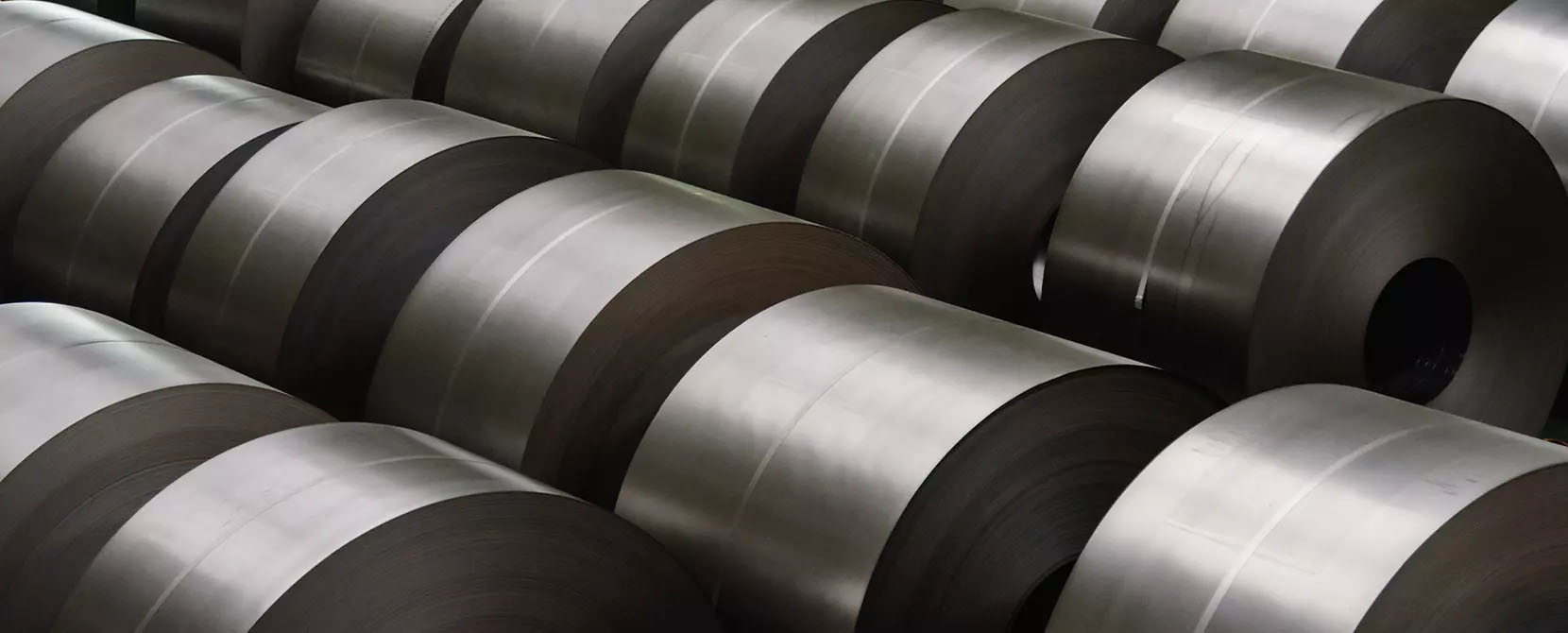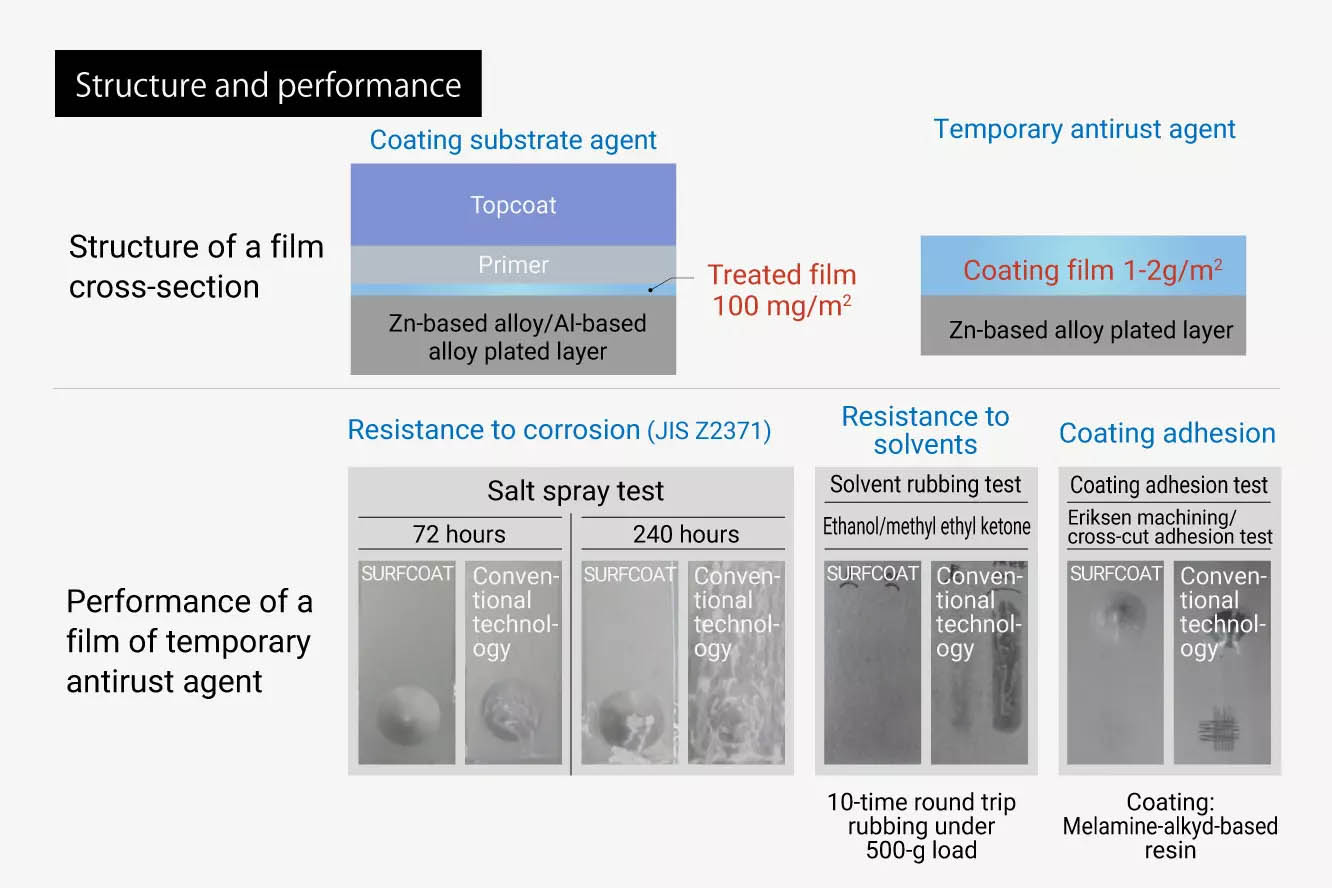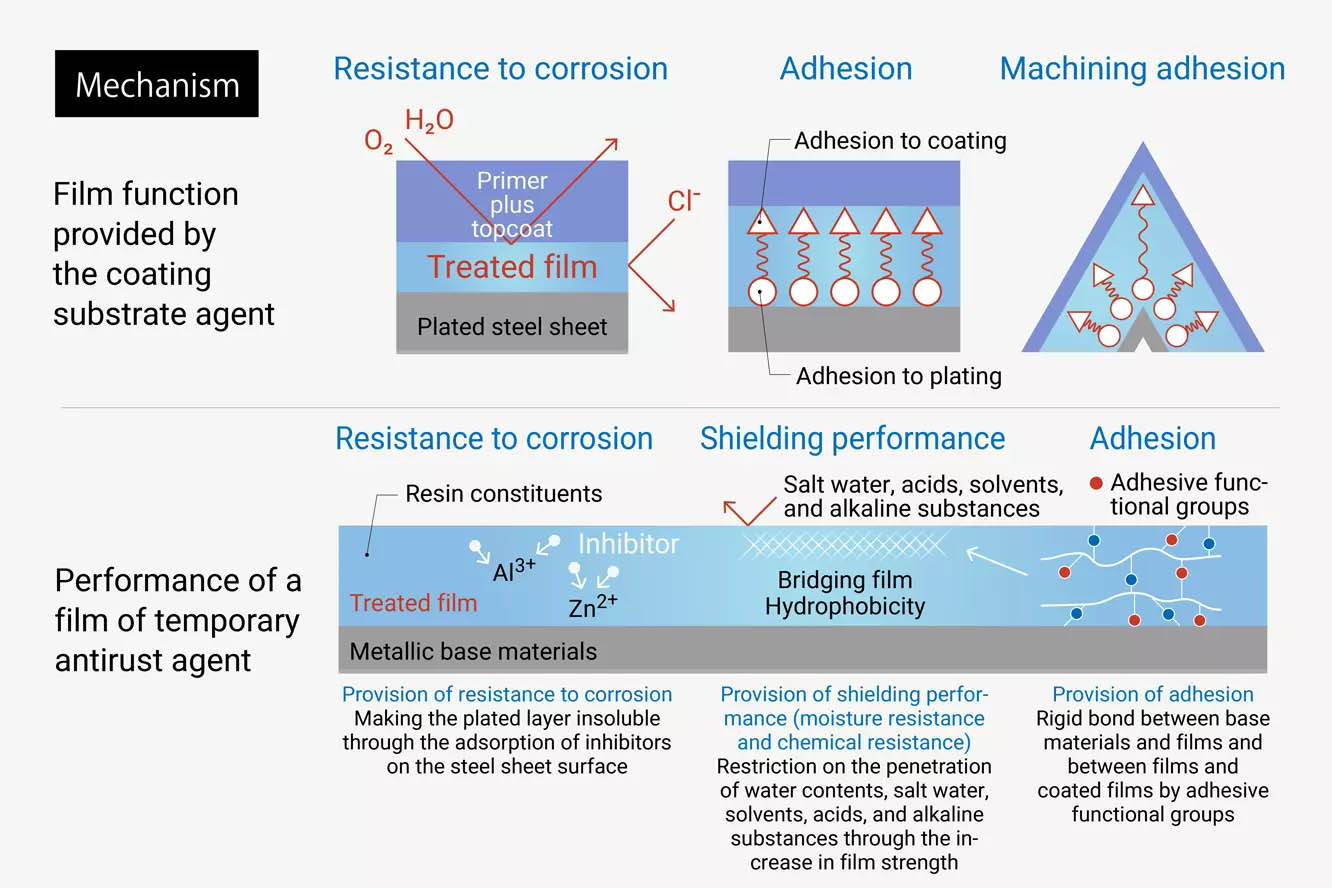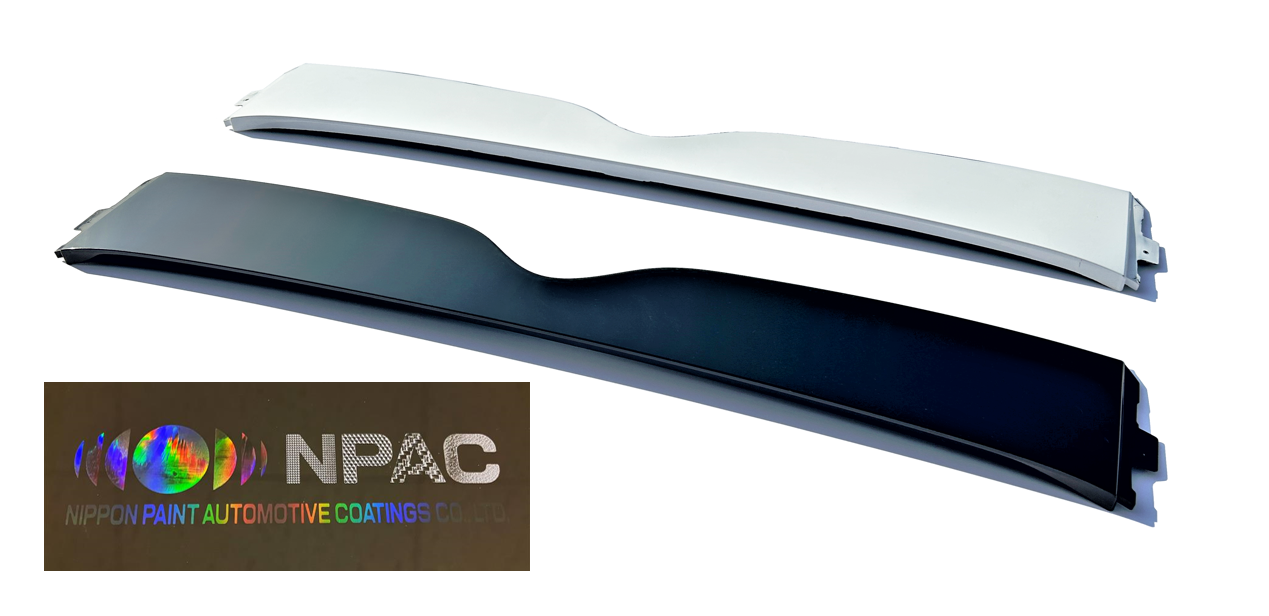- Research and Development
- 2020.11.11
Rust prevention technology for steel coils
A completely chromium-free thin film with a thickness of 0.1 to 2 μm enhances the quality of galvanized steel sheets.


What is rust prevention technology for steel coils?
A steel coil is manufactured by processing a steel sheet and winding it into a coil. Regarding rust prevention technology for steel coils, the treatment agents are named differently depending on the application. An agent that is used for coating after treatment is called a prime coating agent, and an agent that is used independently is called a temporary rust preventive agent.
① Prime coating agent
A prime coating agent forms a film of about 0.1 μm thick on zinc plating and alloy-based zinc plating to impart coating film adhesion and corrosion resistance. It is used mainly for outdoor electric home appliances and construction materials, such as switchboards, roofing materials, shutters, and unit baths.
② Temporary rust preventive agent (fingerprint-resistant agent)
A temporary rust preventive agent forms a film of 1 to 2 μm thick on the surface of zinc plating and alloy-based zinc plating to prevent the development of white rust until workpieces are processed into final products. It also prevents the adhesion of fingerprints during processing and corrosion caused by chemicals, such as acids and alkalis. It is used mainly for construction materials and electric home appliances, including TV sets, washing machines, refrigerators, and air conditioners.

What are the key features of this technology?
① Prime coating agent
A prime coating agent is made mainly from inorganic compounds and organic resins. The following functionality is imparted by mixing a rust preventive agent (special inhibitor) with an adhesion-imparting agent, which have been developed over many years, achieving performance equivalent to that of chromate.
1. Suppression of corrosion reaction by adsorption of an inhibitor on the plating surface (corrosion resistance)
2. Processing adhesion due to strong bonding with the coating film (adhesion)
② Temporary rust preventive agent (fingerprint-resistant agent)
The following functionality is imparted by mixing a thermal cross-linking resin binder with a rust preventive agent (special inhibitor), achieving performance equivalent to that of chromate.
1. Suppression of corrosion reaction by adsorption of an inhibitor on the plating surface (corrosion resistance)
2. Strong bonding with plating achieved by an adhesive functional group (adhesion)
3. Suppression of penetration of corrosive factors by increasing the film density (barrier performance)

Contribution to the solution of social issues
Chromate treatment has been widely used for zinc plating and alloy-based zinc plating due to superb corrosion resistance and coating adhesion. It is still used for products that require rigorous corrosion resistance. However, chromate treatment uses hexavalent chromium, which is hazardous to the human body and adversely affects the environment. We were quick to launch a project to develop alternative solutions. We have a full lineup of completely chromium-free surface treatment agents free from hexavalent chromium and chromium compounds.
Steel coils are indispensable materials for all metal products, and are therefore an integral part of our daily lives. We contribute to realizing a sustainable society where steel products can be used safely over the long term in an environmentally friendly manner.






